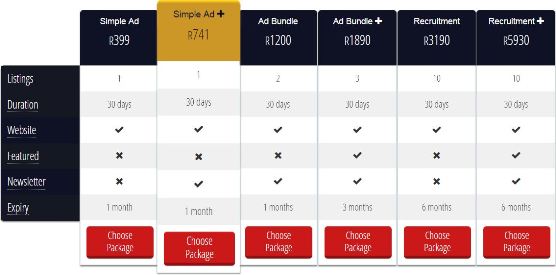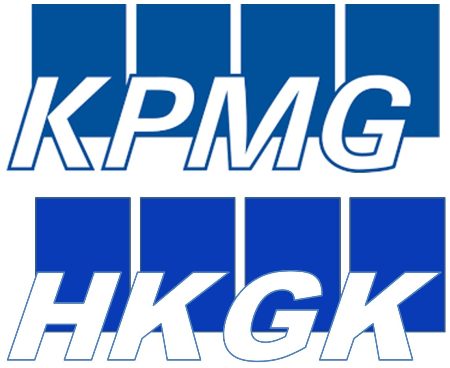|
To Subscribe please click
here |
 |
|
Moonstone Monitor - 28 September 2017 |
|
|
.jpg) |
|
Paul Kruger
Author/Editor |
| |
|
|
| |
|
|
 |
|
|
|
He who is unable to dance says that the yard is stony - Masai proverb |
| |
|
|
Distributed to 48,900 subscribers.
To advertise with us
click here |
|
| |
|
From the Crow's Nest |

|
Catastrophes and the Bottom Line
By Florence de Vries |
Using attention-grabbing adjectives in news headlines to describe
life-changing events has been the preserve of news offices around the world for
years. Over the course of the past few weeks, news reports have delivered the
devastating consequences of fires in South Africa, monsoon flooding in India,
Nepal and Bangladesh, earthquakes in Mexico and hurricanes in the Caribbean and
US. The words ‘battered’, ‘crushed’, and ‘destroyed’, littered across headlines,
applied equally to the environment and the bottom line of insurance companies.
If one goes back in history, you’ll notice that 2017 is hardly the exception.
As the truth about global climate change and poor risk management and planning
come to the fore, general insurers across the world are contending with the
impact of these events on their profitability. Described as the most devastating
catastrophe event in the local insurance industry, the twin events of a large
storm in the Cape followed by fires in Knysna in June hit South African insurers
hard. Most large listed South African insurers reported that their earnings had
taken a knock in the six months to June and industry analysts estimated overall
losses caused by these events could cost the insurance industry in excess of
R3 billion to R4 billion.
In August and early September, parts of the United States and nearby Caribbean
islands were locked in battle with mother-nature as two hurricanes (Harvey and
Irma) destroyed homes and businesses completely. In what was described as the
“most economically significant natural catastrophe in American history”, the
storms battered nearly every single island and town in its path with the
Financial Times reporting that its occurrence had more than likely hurt the
outlook for earnings in the insurance industry.
News reports confirm that “supercat” Hurricane Irma is set to be a material loss
for both the insurance and reinsurance industry, while the impact of Hurricane
Harvey will have further implications. When it comes to catastrophes, reinsurers
matter, largely because they are “the back-up” that help out when catastrophes
hit. It is said that reinsurance programmes have become instrumental,
particularly in a world that has started to face multiple events almost
simultaneously. For now, insurance analysts venture that Hurricane Harvey may
likely only affect reinsurers with exposure to certain risks.
According to Reuters, Mexican insurers are unlikely to see significant impacts
from the earthquake earlier this month, given the low insurance penetration in
the affected areas and reinsurance programmes. Reports are still streaming in
about the latest earthquake that claimed the lives of more than 200 people.
Similarly, the majority of individuals (and businesses) affected by the monsoon
flooding in South Asia did not have insurance. However, global reinsurer Munich
Re reports that the world will continue to see an increase in water-related
disasters in years to come. In the case of most developing countries like Mexico
and some countries in South Asia, large catastrophe events can trigger
devastating blows to their GDP.
As the next reinsurance renewal season kicks off, insurance industry analysts
believe that cedants, brokers and reinsurance companies will have a lot to
consider, including the assertion that insurers underestimate risks when taking
on new business – which is concerning. It will be up to insurance businesses to
realise that these types of events have long since stopped being confined to
geographical borders. They must realise that when it comes to large natural
disasters, or catastrophes, there is always going to be a global impact. As Guy
Carpenter, vice chairman of Dave Priebe said: “We live in a global world and if
this is a capital event, that’s not just for risk supporting Florida and Texas
(in the context of Hurricanes Harvey and Irma), it’s a capital event for global
risk.”
Florence de Vries is a communications manager in the short-term insurance
industry. |
|
|
|
| |
.jpg) |
What if you could focus on doing what you love - looking after your
clients?
Leading Independent Financial Advisory (IFA) practices are using GTC’s
Strategic Partner solution to:
- increase time with clients
- increase earnings
- reduce costs
Shouldn’t you too?
Our staff and systems deliver exceptional service, increasing revenues
and saving costs and time for you, enabling you to build value for
succession.
With offices nationally, we are well-placed to help you.
Call us to discuss a strategic partnership.
t. +27 (0) 10 597 6831
e. info@gtc.co.za
w. www.gtc.co.za
An authorised Financial Services Provider FSP no. 731 |
|
|
Your Practice Made Perfect |

|
Compliance audit on credit life insurance policies
By Gerrit Viviers |
Since the publication of the final credit life insurance regulations
(the Regulations) that came into effect on 10 August 2017, Moonstone
received numerous queries relating to the compliance requirements
imposed by the Regulations.
In the National Credit Regulator’s (NCR) annual report for the period
2016/2017, both the Minister and the NCR’s Credit Provider Compliance
Manager specifically identified the compliance monitoring of the
Regulations as the main focus for the upcoming year. Many credit
providers and insurers will very likely be subject to an NCR monitoring
exercise to assess their compliance with the Regulations.
Moonstone now offers a compliance audit service specifically designed to
assess credit providers’ and insurers’ compliance with the Regulations,
including:
-
The maximum prescribed fee calculations for credit life
insurance premiums;
-
The minimum policy benefits;
-
The permitted policy exclusions and limitations;
-
The avoidance of prohibited conduct;
-
The permitted waiting periods; and
-
The other compliance requirements imposed by the Regulations.
For peace of mind regarding the compliance status of your credit life
insurance products, contact Moonstone today.
Moonstone has a NCA Specialist to render NCA compliance services to
its clients. Should you want to enquire about its product audit service,
please contact Gerrit Viviers on 021 883 8000 or by email to
gviviers@moonstonecompliance.co.za. |
|
|
|
|
|
 |
| |
|
Vehicle aftermarket code to aid transformation
|
Legalbrief Today published the following:
The Competition Commission is concerned about anti-competitive conduct
in the automotive after-market and has published far-reaching proposals
that will shake up the industry, says a Business Day report.
The proposals were contained in a draft code of conduct gazetted for
public comment on Friday, 22 September, that aims to transform the
sector and encourage greater participation of historically disadvantaged
individuals. Once finalised, the code will bind the car manufacturers,
government bodies, industry associations and insurers that will be
signatories to it. ‘The code of conduct is intended to address
competition concerns arising from agreements between original equipment
manufacturers and dealers, insurers and repair and maintenance service
providers which have the effect of substantially lessening or
preventing competition and which have created barriers to entry in the
automotive industry,’ the draft code said.
Of concern to the industry will be the proposal to remove restrictions
that stand in the way of small, independent and historically
disadvantaged service providers from undertaking service and maintenance
work while a vehicle is in warranty. The code proposes that original
equipment manufacturers provide access to the safety and technical
specifications of their parts to enable independent service providers to
undertake these repairs. The commission wants to remove the ‘onerous
requirements’ that prevent historically disadvantaged individuals from
owning car dealerships.
Please
click here to download the full media release. |
|
|
|
| |

|
| |
Technologically Speaking

Moonstone Information Refinery |
|
Disruptive Technology in traditional insurance business |
For most of us, the advent of technology in the industry is a bit like
the famous saying back in the bad old army days: Hurry up and wait.
A recent article in the magazine Raconteur made some very
interesting comments about possible applications of technology in
the way we currently do business, and the impact thereof.
Below is a brief synopsis, followed by a link to the full article.
Tech companies succeed when they see the world differently and find
new ways to meet genuine consumer demands at a fraction of the costs
and with none of the complexity associated with the existing
industry players.
This is the allure of technology for the insurance industry.
Characterised as it is, though to some degree unfairly, as old
fashioned in attitudes, approach and customer service, it is seen
both from inside and out as ripe for disruption.
In the past few years, so much technology money poured into the
insurance sector that it created its own buzzword – insurtech. All
manner of innovations, business models and aps are being developed
in the hope that they will revolutionise a traditional business.
But while there is money in abundance we still have not seen the
vision and no one in the technology industry has yet come up with a
fundamentally new way of thinking about the management of risk.
There is as yet no sign of the insurance industry’s Amazon or Uber.
There is a good reason for this. Much of the effort currently is
based on taking what has worked elsewhere in e-commerce and seeking
to apply it to the insurance business.
But there is a problem. Most of the consumer apps, which have
achieved significant success in other areas, provide new and easier
ways for people to find, buy and have delivered something they
really want. These apps are pushing on an open door.
The problem with insurance is that nobody really wants it. People
might understand they would be wise to buy it; they might even as
drivers be compelled to have it, but that does not make it a
purchase they enjoy. New technology can deliver insurance more
cheaply, enable customers to shop around and make the process much
faster, simpler and easier. But it cannot overcome this basic
antagonism.
And it is the same with the issue of trust. The caricature of the
industry is that when a claim is made, the insurer will try to chip
away at the amount and the customer will chuck in a few extra items
which were not lost or stolen in anticipation of this. Then there is
a negotiation. Technology, in theory, should do away with this human
interaction, but in a world where people struggle to come to terms
with business where the “computer says no”, are they really ready
for “computer says trust me”?
That is not to say there will be no benefits. Facial recognition
technology already provides as much information on age, lifestyle
smoking habits and health as a ten-page medical questionnaire, and
without the ability to embellish the answers.
Life policies could soon be sold on the basis of a selfie, without
the need for the medical.
Insurance could become personal rather than product oriented. If you
have three cars, all have to be insured, though you will only ever
be driving one at any particular time.
But technology will soon make it cheap enough to insure people
rather than products, so the customer will be paying only when the
product is in use, when actually driving or travelling, or taking on
any of life’s other myriad risks.
However, it might not all be cosy for the customer. The other side
of insurtech is the work being done on data, and the developing
ability of underwriters to gather and process vastly greater
quantities of information than ever before, in ways which give them
far greater insight into where the risks really lie.
The upside is that these greater insights should lead to much keener
pricing for the majority. The downside is that those whom the
computer says are risky, might find it impossible to get any cover
at all, just as flood insurance is hard to come by in some areas.
This would also apply in areas of health, where gene sequencing
might be used to predict future illnesses and longevity.
If this leads to only the good risks being insured, it will provoke
an intense debate around the issues of privacy and discrimination.
What all this underlines is that selling financial services is far
more complex than selling conventional items in retail and insurance
is one of the more complex areas within financial services. That
complexity lends itself to bespoke operations and tailor-made
policies whereas technology thrives on standardisation.
But these problems will eventually be solved and there is no
shortage of money looking for the answers.
Click here to read the full article.
Suitebox Media contact
Neil Summers, Sales Manager, Moonstone Business Services
Mobile: +27729088994
Email:
neil@suitebox.com.
|
|
|
|
|
Regulatory Examinations
|

|
|
|
| |
|
Frequently Asked Regulatory Exam
Questions |
| 1. |
What exam must I write?
Both the RE 5 and RE are Level One exams. RE 5 is for Representatives and
RE1 for Key Individuals. The RE 3 exam is for licence category II
candidates.
|
| 2. |
How much does it cost?
The FSB determines the fee. Currently it costs R1163 per exam, also in
the case of a re-write.
|
| 3. |
What preparation material is available?
Fully updated resources are available for those requiring access to the
legislation applicable to the regulatory examinations:
|
| |
● |
Please make sure that you first read the
FSB’s Preparation Guide to
make sure you follow the right process in preparing. Page seven includes
a recent amendment to guide candidates in studying in the correct
manner. |
| |
● |
Click on the following highlighted sections to download the relevant
updated Inseta learning material for key individuals,
RE 1, and
representatives,
RE 5. |
| |
● |
LexisNexis provides a “Legislation Handbook” together with a
“Preparation Guide” containing the qualifying criteria, with a link to
the relevant legislation. |
| |
● |
The
Juta FAIS Pocket Statutes also contains a CD with a comprehensive
list of updated supplementary legislative material for reference
purposes. Please click here to order this from our online shop. |
| |
● |
The FSB’s telematics broadcast on the RE 1 and RE 5
provides a good introduction and overview, and can also be ordered
online in: |
| |
|
DVD format or on a
USB memory stick
MP4 direct download - 2 Gb |
| 4. |
Where can I write?
Go to:
http://www.faisexam.co.za/show_venues |
| 5. |
What dates are available?
Go to:
http://www.faisexam.co.za/view_schedule |
| 6. |
What training is available?
As an Exam body we are not allowed to recommend companies that offer
face-to-face Regulatory exam classes. You can try Google for someone in
your area.
Bear in mind that this exam tests your knowledge about the laws
applicable to the provision of financial advice and intermediary
services. The questions are based on very specific qualifying criteria
set out in the FSB preparation guide. Any training that does not have
this as a basis will not prepare you properly for the exam. Do your own
research and don’t just accept what others say. |
| 7. |
Where can I buy old question papers?
There are no genuine “old question papers” available. Be very careful
when buying such preparation aids as some of those on offer are not in
line with the high standard prevailing in the actual exams and often
lead to a false sense of knowledge which is sadly exposed when
confronted by the actual exam. Follow the guidelines provided in the FSB
Preparation Guide and you are far more likely to achieve success. |
|
|
|
|
|
Careers Platform
|
|
Are you hiring? Advertise your position on Moonstone’s Career Platform
|

| • |
The Moonstone website -
www.moonstone.co.za
- enjoys an average of 15 000 visits and approximately 39 000 page views per month. |
| • |
Moonstone boasts an exclusive newsletter mailing list of over 48000
dedicated financial decision makers who receive 2 newsletters per week. |
| • |
Our audience is relevant and industry specific: individual and corporate advisors and brokers in the following financial sectors:
Investment, Risk, Healthcare, Banking, Retirement, and Insurance. |
|
|
|
|
| |
|
Featured Positions |
-
Business Development
Manager:
Sovereign Group, Johannesburg - If you are a Graduate or admitted
attorney, a confident public speaker with general company, commercial
and trust law and happy to spend 50% of your time out of the office in
meetings, selling Sovereign Trust’s services, then
Read More
-
Marketing & Events
Coordinator:
Sovereign Group, Cape Town - The applicant must be a fluent and
articulate English and Afrikaans speaker holding an undergraduate degree
obtained from a reputable tertiary institution. Applicants with a
marketing background will receive preference.
Read More
-
Legal/Administration
Assistant Position (Half Day):
Sovereign Group, Cape Town - The successful applicant will assist
two to three lawyers in the office, must have a relevant degree and be
fluent and articulate in English and Afrikaans.
Read More
-
Financial Advisor:
Origin Financial, Cape Town - The core function of the successful
candidate is to look for new business and maintain relationships with
clients. Must have own car & driver’s licence as well as RE certificate.
Read More
-
Financial Advisors:
Quantum Invest (Pty) Ltd, Randburg Ridge, Johannesburg - If you have
a Matric and RE5 Certificate with 8 months experience in the Insurance
Industry, then
Read More
|
|
|
|
|
In Lighter Wyn |
 |
|
New Logo? |
|

Humorous Epitaphs
In memory of the late Hugh Hefner, who some suggest should have the
following on his gravestone:
Stiff at last without the aid of medication.




And on that deadly note we wish you a great weekend and, hey, be
careful out there!
|
|
|
|
|

Tel: +27 21 883 8000 | Fax: +27 21 883 8005
info@moonstoneinfo.com
www.moonstone.co.za
P.O. Box 12662, Die Boord, Stellenbosch, 7613, Republic of South Africa
Disclaimer:
Services and products advertised by external product suppliers in
this newsletter are paid for by the respective suppliers. Moonstone
does not endorse any opinions, conclusions, data, products, services
or other information contained in this e-mail which is unrelated to
the official business of Moonstone and furthermore accepts no
liability in respect of the unauthorised use of its e-mail facility
or the sending of e-mail communications for other than strictly
business purposes.
The complete disclaimer can be accessed
here.
|
|
|
©2015 Moonstone. All rights reserved. |


.jpg)






.jpg)











